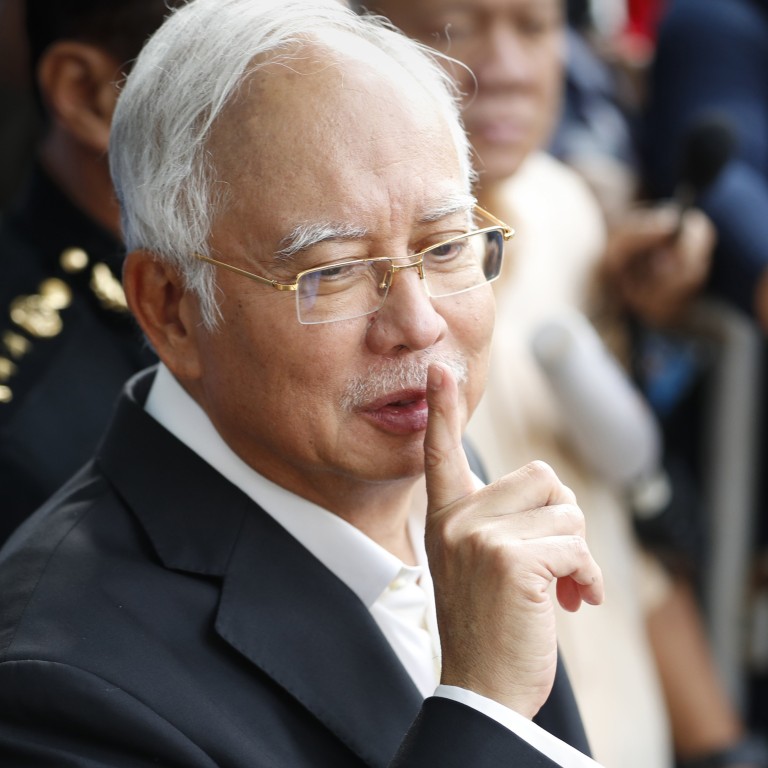
Malaysia 1MDB scandal: Najib Razak may be down, but don’t count him out just yet – ‘even from behind bars’
- The disgraced former leader has powerful friends in high places and is still beloved by his supporters, for whom he remains ‘Bossku’
- His greed appears to have outdone his political survival instincts, for now, but the idea of a swift rehabilitation cannot be easily dismissed
His ranks of critics said it was just deserts for a 69-year-old whose greed appears to have – for now at least – outdone his instincts for political survival. With several further charges ahead of him, they hope Najib’s career is firmly in the ground.
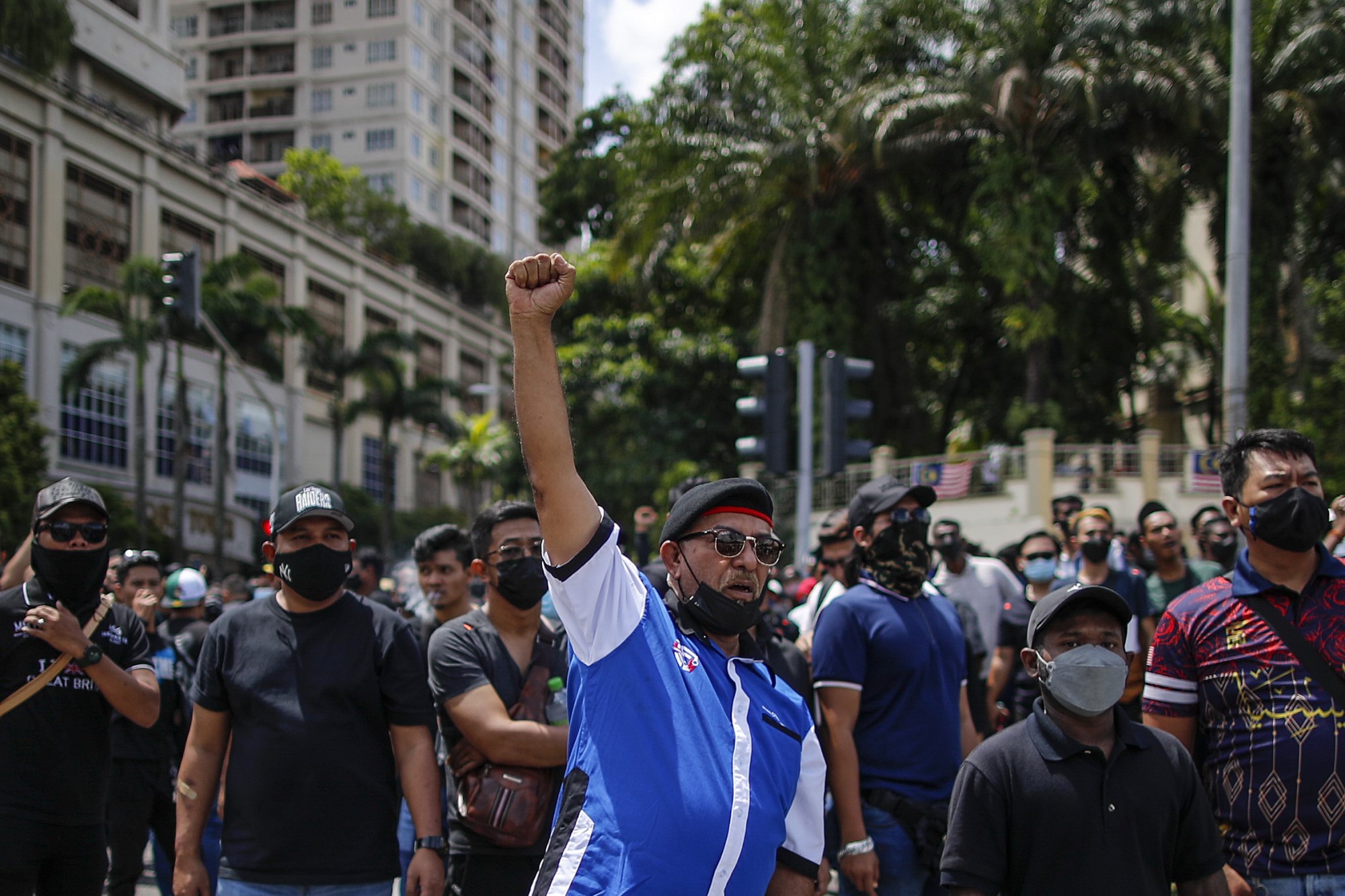
“Even from behind bars, Najib is still trying,” said long-time Malaysian politics watcher James Chin from the University of Tasmania, who believes that if Najib is granted a pardon before an election is called, he will contest his seat.
Malaysia’s Najib tries to get judges replaced in 1MDB-linked appeal
The bench swatted away appeals for a delay to the ruling and a desperate, last-gasp attempt by Najib to claim he had inadequate legal representation to ensure a fair trial.
“Over the past week, I have watched from the dock as my chances of success at this appeal slowly erode away,” a forlorn Najib said in his final comments.
That night he was transferred to Kajang Prison, swapping a life of wealth and luxury for a prison cell, after the court upheld both his jail term and a massive 210 million ringgit (US$47 million) fine.
In a withering ruling knocking back his final appeal, Chief Justice Tengku Maimun Tuan Mat described Najib’s defence as “inherently inconsistent and incredible”.
This is a simple and straightforward case of abuse of power, criminal breach of trust and money laundering
“This is a simple and straightforward case of abuse of power, criminal breach of trust and money laundering,” she added.
Najib’s political enemies applauded justice being served by a system rarely seen to act decisively against the powerful.
As the ink dries on this case – involving 42 million ringgit funnelled from a pension fund through a now-defunct unit of 1MDB – there are now four other corruption cases Najib still has to worry about.

Malaysians left to foot the US$8.7 billion 1MDB bill
It will cost Malaysian taxpayers 38.8 billion ringgit (US$8.7 billion) in outstanding debts that the country is committed to service until 2039, well beyond Najib’s 12 year imprisonment, sluicing off much-needed funds from more pressing needs such as a creaking universal healthcare scheme.
What is there to dispute, why are people so jealous of him?
But in Malaysia, Najib remains popular, particularly among that segment of the population who were weaned on loyalty to his family name and remain in thrall to his grand personality. They refuse to believe he committed a crime – even if he did siphon off public funds.
“He is from a good breed, with titles and wealth,” said supporter Iera Badros. “What is there to dispute, why are people so jealous of him?”
Born into an aristocratic family with close ties to the Pahang royal family – one of the nine royal houses of Malaysia – Najib is the firstborn son of the country’s second Prime Minister Abdul Razak Hussein, who is celebrated for saving Malaysia at a time of heated racial tension in the late 1960s, and for reinvigorating its economy, before suddenly dying in office. His son was educated at a British public school and retains a clipped accent.
Najib was given a leg-up into politics at just 23 when he ran unopposed for his late father’s parliamentary seat and vaulted up Malaysia’s political ladder, powered by networks loyal to the family name.
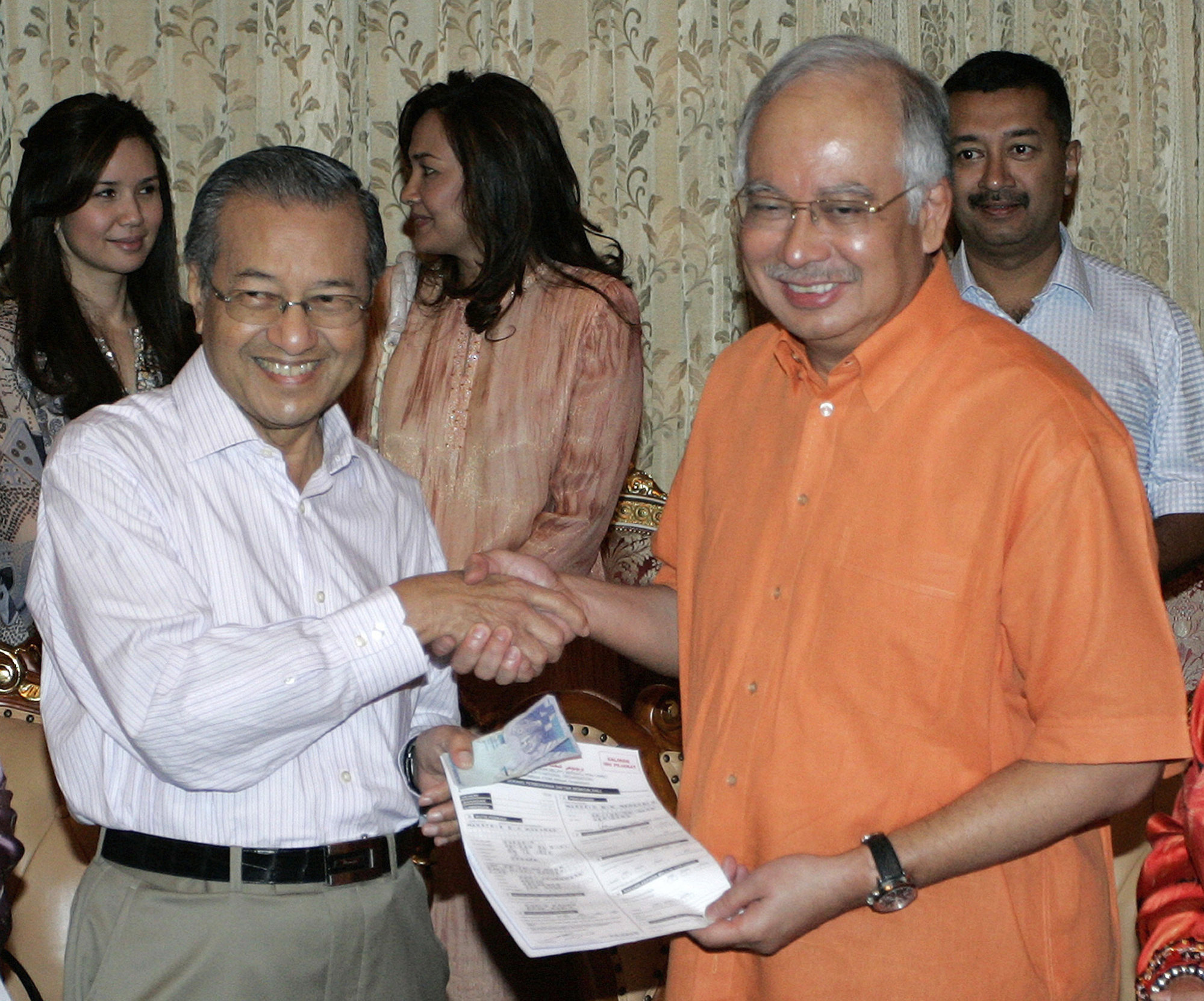
He became chief minister of his home state at just 29, before being made a cabinet minister at 33, remaining there until his ascension to the premiership in 2009 at 56 years old.
The now 97-year-old Mahathir defended the young, maverick Najib who was not particularly liked by fellow Umno party members at the start of his career.
“The fact is I wanted to repay the kindness shown to me by Tun Razak,” Mahathir said in 2015.
The succession plan unfolded after then-Prime Minister Abdullah Ahmad Badawi was ousted by his own party members in the wake of a disastrous 2008 election result that saw Umno lose its coveted two-thirds majority, yet cling onto government.
Why Malaysia’s better-than-expected growth adds impetus to early poll calls
Najib emerged as a reformist star who could restore the fortunes of the chastened party and uplift a drifting economy.
As prime minister, he was often described as appearing more “presidential” than his predecessors, and for a while that suited him well. To allies, his lofty delivery in English or Malay defined him as a “gentleman”.
But critics saw him as grandiose and removed from the realities of Malaysian life – an image burnished in the food-obsessed country when he said he eats quinoa instead of rice in the heat of an inflation crisis.
But early on in government his tagline “1Malaysia” caught the imagination as Najib sought to unite a fractured society around his leadership and bring the country to greater economic heights under the motto of “people first, performance now”.
“Together, we will ensure that Malaysia emerges a stronger, more unified, and prosperous nation,” he said after being sworn in.
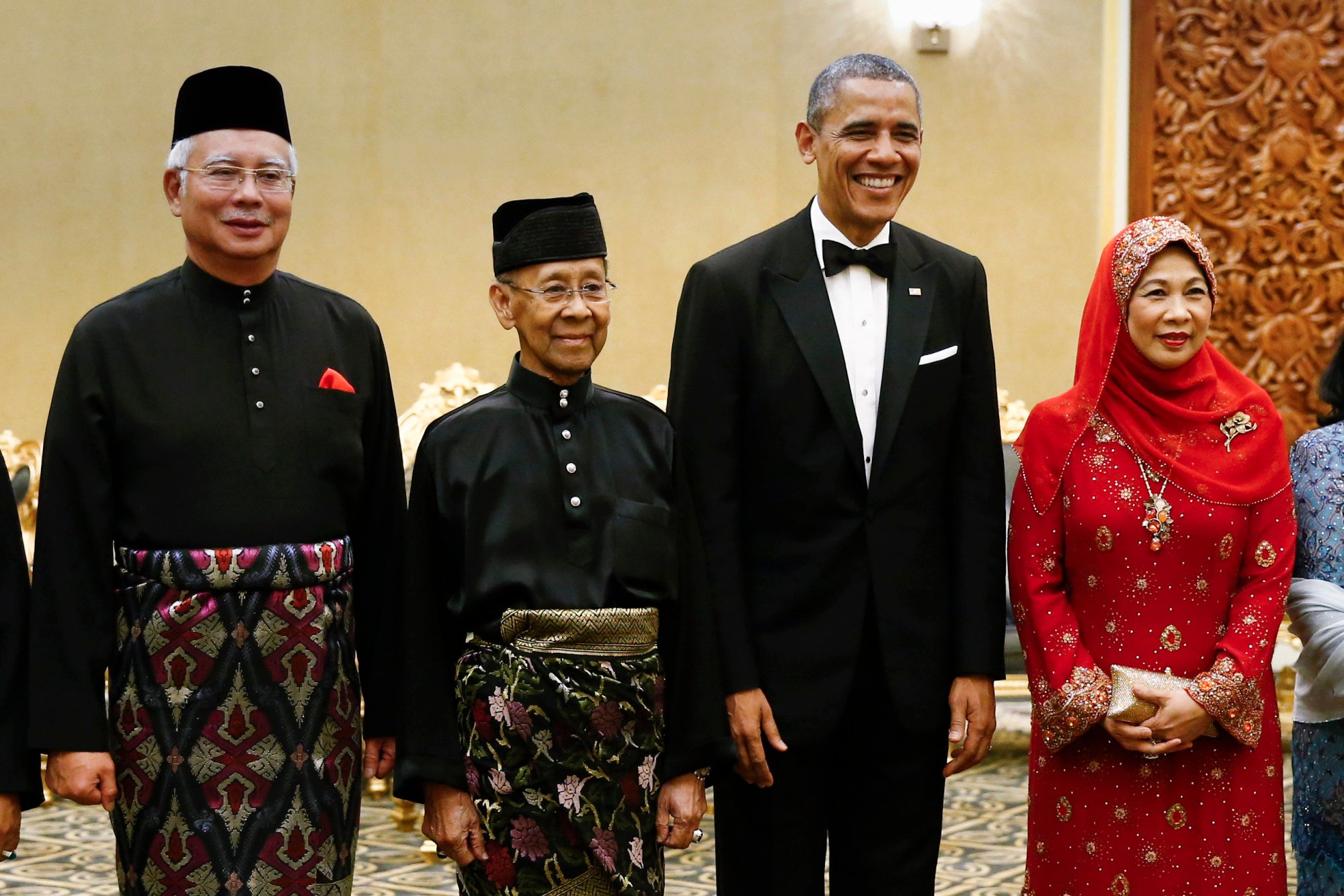
From progressive politician to reactionary tyrant
He also earned a tag as a progressive politician, making the bold move to repeal the Internal Security Act that had often been used to silence dissent by detaining anyone for up to two years without trial.
Yet it drove a wedge between him and his former political sponsor Mahathir, who opposed the move – having used the act extensively while in power.
Malaysia’s Najib Razak hails Indonesia’s ‘proactive steps’ to deepen China ties
By that point, Malaysians had already seen years of rising costs popularly blamed on Najib’s introduction of the Goods and Services Tax in 2015.
That tax, alongside the 1MDB scandal, would ultimately bring down his government and eject his party from dominating the country’s political landscape for the first time since Malaysia’s independence in 1957.

Najib as ‘the de facto opposition to the government’
Out of power and with a scandal swirling, Najib’s remoteness from ordinary people left him exposed.
He moved to rebrand, taking to social media to get his voice heard as he attempted to present his own narrative of 1MDB to supporters still reeling from the shock election result.
Unencumbered by the trappings of office, Najib dropped his sharp tailored suits for T-shirts and jeans and posed next to small motorbikes to capture the public’s attention and channel them to his popular Facebook page where he reinvented himself as the voice of the people, calling out injustices on their behalf.
This is the culture brought by Najib. The culture of shamelessness
The aristocrat became Bossku, lifting the term from blue-collar workers in rural Sabah who use it as a term of endearment between themselves, calling each other “my boss”.
It is now synonymous with Najib, even among those who don’t like him, giving a sense of the enduring appeal he may hope to rekindle at the right time.
From the sidelines, he still used his voice to overshadow a fractured, weak opposition.
“He took the populist approach to voice out day-to-day issues that we used to do when we were the opposition,” said Parti Keadilan Rakyat (PKR) deputy president Rafizi Ramli. “Effectively, Najib is the de facto opposition to the government.”
Najib’s comeback hopes gain steam as rivals falter in Malaysia state polls
Along with the new persona, his team coined a catchphrase aimed at downplaying the depths of the corruption allegations which have entangled him: Malu apa Bossku?, Malay for ‘what is there to be ashamed of, my boss?’.
This tagline caught the ire of Mahathir, who accused Najib of legitimising the taking of bribes to get things done.
“This is the culture brought by Najib. The culture of shamelessness,” the elder statesman said.
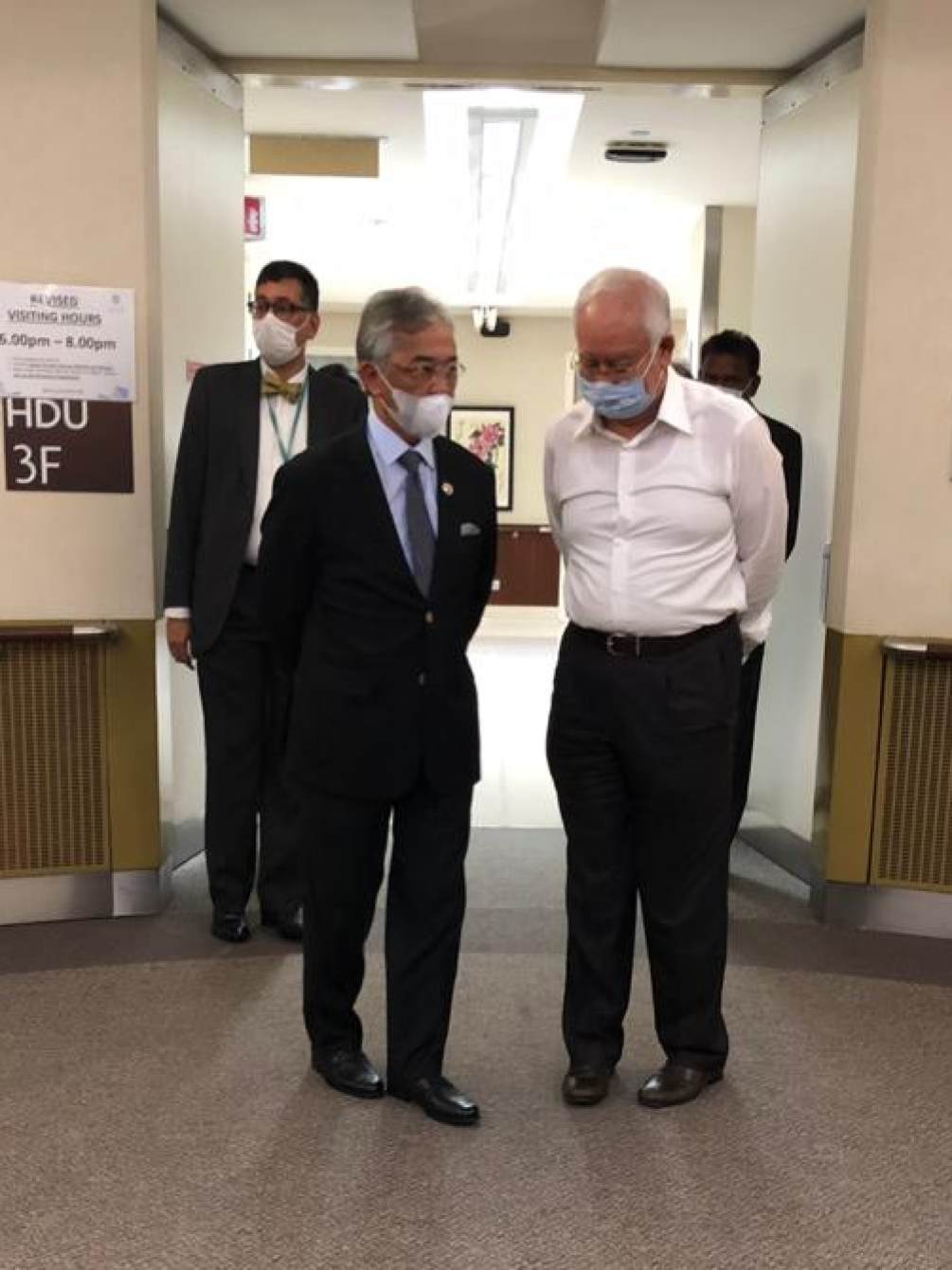
To an inmate – who has the king’s ear?
Mahathir on Thursday said “Najib is very likely to be pardoned”, echoing sentiments among a Malaysian public who do not expect to see an aristocrat close to the Pahang palace languish in jail for long.
Aside from inheriting his father’s seat in parliament, Najib also inherited Abdul Razak’s seat on Sultan Abdullah of Pahang’s council of four trusted advisers. Sultan Abdullah just so happens to also be the current king of Malaysia – a post that is shared among the country’s nine sultans with a new king being appointed every five years.
While the palace is yet to comment on Najib’s fate, the king in May hosted both the former prime minister and his wife Rosmah, alongside other top office holders, for dinner at the National Palace in Kuala Lumpur.
That invitation came despite Najib’s status as a convicted man – albeit one who was waiting on a final appeal. Experts say it indicates that the ex-leader remains in the monarch’s good graces.
As Najib became acquainted with life behind bars, more than 100 supporters descended upon the gates of the National Palace on Wednesday demanding a pardon for him and Prime Minister Ismail Sabri’s intervention “within this week”, threatening a larger turnout if their demands were not met.
In a counter move, an online petition started by The Coalition for Clean and Fair Elections on Wednesday that was signed almost 100,000 times implored the monarch not to use his power to help Najib, saying the people had suffered enough already from corrupt elected officials.
“Your Majesty, help us to uplift our heads high once again, to make us proud again as Malaysians,” the group said.
Could Najib Razak be Malaysia’s next prime minister?
Meanwhile, the country’s Prison Department has been forced to dispel rumours that its famous new guest is receiving preferential treatment and luxurious accommodation on the inside.
Having lost his access to social media, his daughter Nooryana Najwa – Gina to the family – appears to have taken over communications channels with Najib’s supporters. She now regularly shares updates on her father’s well-being and talking points about his case that are subsequently broadcast by supporters.
In her first update after her father’s incarceration, she shared this snippet of his wisdom:
“Gina,” she said he told her. “As a politician I guess we have to experience it all, from Buckingham Palace to the White House to Kajang Prison.”


